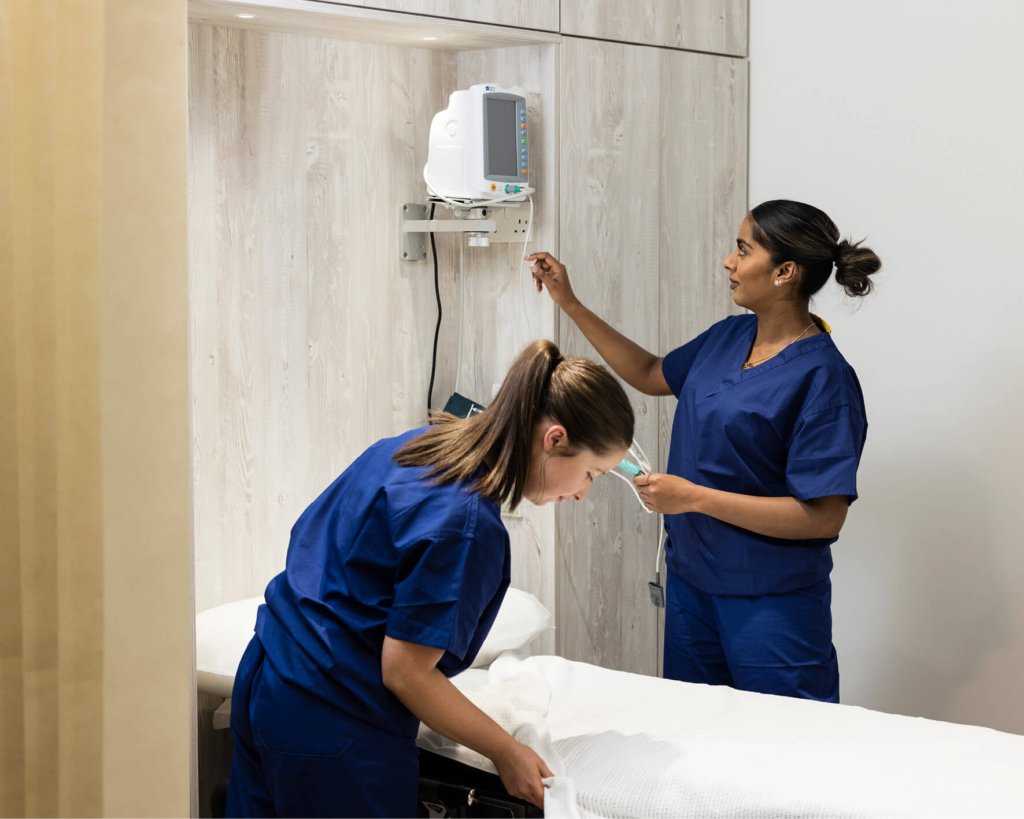What is a HyCoSy test?
A HyCoSy test is a short and very routine procedure to check the fallopian tubes for any blockages or abnormalities, which may be sometimes stopping a women from conceiving.
What is a HyCoSy?
HyCoSy stands for Hysterosalpingo Contrast Sonography and is a short and very routine procedure to check the fallopian tubes for any blockages or abnormalities. It is sometimes called tubal patency or dye test for fallopian tubes and it involves using a dye to help highlight the area and then an ultrasound scan, as normal-looking fallopian tubes can’t be viewed by a standard ultrasound or x-ray in the absence of contrast. A HyCoSy test may be a substitute for HSG (hysterosalpingogram) and if suitable can be preferred as it doesn’t involve radiation, it can also be a substitute for laparoscopy with dye.
Read on to find out who needs a HyCoSy and more detail about the procedure and what to expect when you come in.
Who needs a HyCoSy scan?
The female egg is carried from the ovaries to the uterus through the fallopian tubes, so if there are any damages or blockages along the way, it can cause issues with reproduction. A HyCoSy scan looks at the uterine cavity and fallopian tubes to see if this is the case.
The reproductive system is very complicated and involves hundreds of steps, if something goes wrong at any one of these steps, it can cause fertility issues. Around 40% of infertility in couples is due to dysfunction of the female reproductive organs, so we would always test these when investigating infertility. There are many tests that can be done to assess fertility and At The Evewell, we are fertility experts with 20+ years’ experience and will be able to advise you, based on your medical history and previous experience on what tests you need to help diagnose fertility issues and to help you create a family.
If you have been having regular intercourse with your partner, especially around the time of ovulation and haven’t gotten pregnant in 12 months, you may be experiencing infertility and should get in touch.
Find out more about fertility testing here.
HyCoSy procedure and what to expect
Before the procedure
The test can’t be done when you are on your period and is usually best performed between day 6-10 of a regular 28-day menstrual cycle, where day 1 is counted as the first day of your period. It is also important to ensure that you are definitely not pregnant, as the test can disturb the implantation of an embryo. An up-to-date chlamydia test is also required.
Just before you have the test, you must go to the toilet to empty your bladder.

HyCoSy procedure itself
The HyCoSy procedure is a transvaginal procedure, which means it happens internally. It takes around 30 minutes, and a small catheter will be inserted through the cervix and passed through to the uterus, where it will deposit dye for the fallopian tubes. The dye is 100% safe and won’t have any effect on future fertility, it just allows us the see the tubes better.
The treatment itself although short and routine is performed by a highly skilled professional. They will then carry out an ultrasound and if the fallopian tubes are open, we will be able to see the fluid passing through.

Side effects and post-procedure
A HyCoSy test is a safe and routine procedure, however, with all procedures, there are some small side effects which may occur. A small amount of pain or discomfort may occur from the catheter; however, this can be treated with paracetamol. If you are nervous about this, you can take paracetamol 2 hours before the treatment to anticipate this. There is also a very small chance (1 in 100) that you may get a uterine or pelvic infection after this procedure and you will be provided with an antibiotic cover.
The Evewell
If you are having trouble conceiving or are interested in a HyCoSy scan, please get in touch with us via phone on 020 3974 0950 or email appointments@evewell.com.


